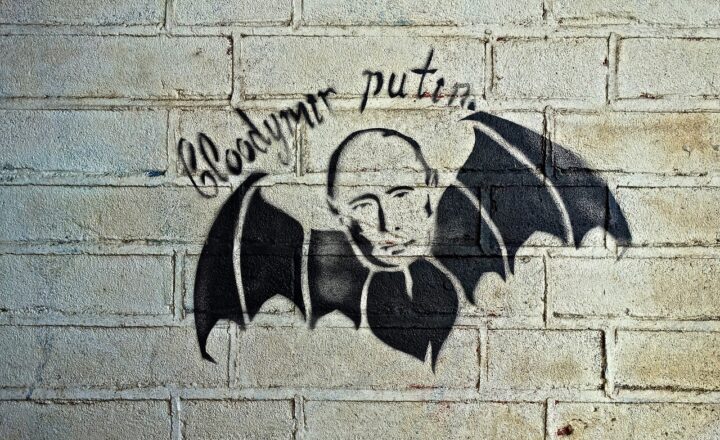The Real-World Impacts of Comic Book Fandom: How Pop Culture Shapes Our Perspectives and Beliefs
November 14, 2024

Comic book fandom has transcended beyond mere entertainment; it has become a significant cultural phenomenon that influences societal perspectives and beliefs. From the rise of superhero movies to graphic novels that tackle complex issues, comic books do more than tell stories—they reflect societal values, challenge norms, and foster communities. In this article, we delve into various dimensions of comic book fandom and examine how these illustrated narratives shape our world views.
1. The Evolution of Comic Books in Pop Culture
Comic books have a rich history dating back to the early 20th century, evolving from simple, whimsical tales to complex narratives tackling various themes. The Golden Age of Comics during the 1930s and 1940s introduced iconic characters like Superman and Batman, who presented ideals of heroism and justice. In modern times, comic books have adapted to address pressing social issues:
- Representation: Characters like Black Panther and Ms. Marvel have brought diversity into mainstream comics, allowing marginalized communities to see themselves represented in powerful narratives.
- Mental Health Awareness: Storylines featuring characters coping with issues like addiction, PTSD, and depression have made mental health discussions more mainstream and relatable.
- Social Justice Movements: Comic books often act as vehicles for social commentary, addressing topics like racism, sexism, and environmentalism, echoing the sentiments of movements across the globe.
As comic books continue to evolve, they reflect and influence the collective consciousness, shaping our understanding of multifaceted issues.
2. Fostering Community and Connection
Comic book fandom creates spaces where individuals can connect through shared interests. Conventions, online forums, and fan clubs nurture communities that thrive on collective enthusiasm. The relationships formed through comic book fandom often lead to profound impacts, such as:
- Support Networks: Many fans form networks that provide emotional support, particularly for those who feel isolated in their everyday lives. Engaging in discussions about beloved characters can foster solidarity and camaraderie.
- Creative Expression: Fans who are inspired by comic book narratives often create their own art, stories, and fan fiction, adding layers to the established narratives and contributing to a larger cultural dialogue.
- Activism: Comic book fans often unite for causes—using their love for characters who stand for justice to inspire activism and community service, thereby embedding their fandom into real-world impact.
Such community interactions highlight the power of shared narratives in fostering connections and creating inclusive environments.
3. Shaping Identities Through Cosplay and Fan Culture
Cosplay—costume play—has emerged as a prominent aspect of comic book fandom, allowing fans to express their identities through characters they admire. Cosplay brings forth exciting dynamics:
- Empowerment: For many, crafting a costume and embodying a character is empowering. It can boost confidence and allow individuals to explore facets of their identity they may not express in everyday life.
- Creativity and Craftsmanship: The detailed art of creating costumes enhances skills in sewing, crafting, and even acting. It encourages creativity and innovation, giving individuals a fulfilling outlet for self-expression.
- Social Commentary: Through cosplay, fans can also make statements about societal issues, such as gender representation and body positivity, by choosing to portray characters that align with their beliefs.
Cosplay is not just a reflection of fandom but a way to engage with the social fabric, driving conversations about diversity, acceptance, and individual expression.
4. Comic Books as Educational Tools
In recent years, educators have recognized the value of comic books as pedagogical tools. Their visual format engages readers and makes complex themes more accessible. This transition into education has revealed:
- Teaching Literature and Critical Thinking: By analyzing the narrative structures and character development found in comic books, students learn to interpret texts and enhance their critical thinking skills in an engaging manner.
- Addressing Real-World Issues: Graphic novels can address current social issues, enabling classrooms to discuss topics like bullying, mental health, and historical events through compelling narratives that resonate with students.
- Encouraging Reluctant Readers: The visual appeal of comics can attract reluctant readers and help foster a love for reading among those who may otherwise disengage from traditional texts.
By leveraging the medium of comic books, educators can disseminate knowledge effectively, making learning more interactive and relatable.
5. The Global Influence of Comic Book Fandom
Comic book fandom is not confined to Western cultures; it has a global presence that influences a myriad of perspectives worldwide. Various regions interpret and integrate comic book themes differently:
- Cultural Exchange: Countries have developed their own comic book industries, leading to a blend of storytelling styles. Japanese manga, European bandes dessinées, and Latin American comics reflect their unique cultures while engaging with global comic book trends.
- Social Reflections: Comics from different cultures engage with local socio-political issues, revealing varied societal beliefs and customs that differ from Western narratives. This exchange cultivates a sense of global awareness among fans.
- Transmedia Storytelling: The interconnectedness of comics with other media (films, video games, and novels) offers fans immersive experiences that transcend cultural boundaries, shaping perceptions globally.
The global diversity of comic book fandom illustrates its expansive reach and transformative power, fostering a deeper understanding across cultures.
Conclusion
Comic book fandom is more than just an interest in superheroes and graphic novels; it reflects the complexities of contemporary society. From shaping identities and fostering inclusivity to promoting education and global awareness, comic books have a profound impact on our lives. As we continue to engage with these narratives, we recognize their ability to inspire change, challenge norms, and connect communities. Whether through new storylines or fan-driven movements, comic book fandom is a vibrant tapestry of culture, illustrating how our beliefs and perspectives are crafted by the characters we admire and the stories we share.








